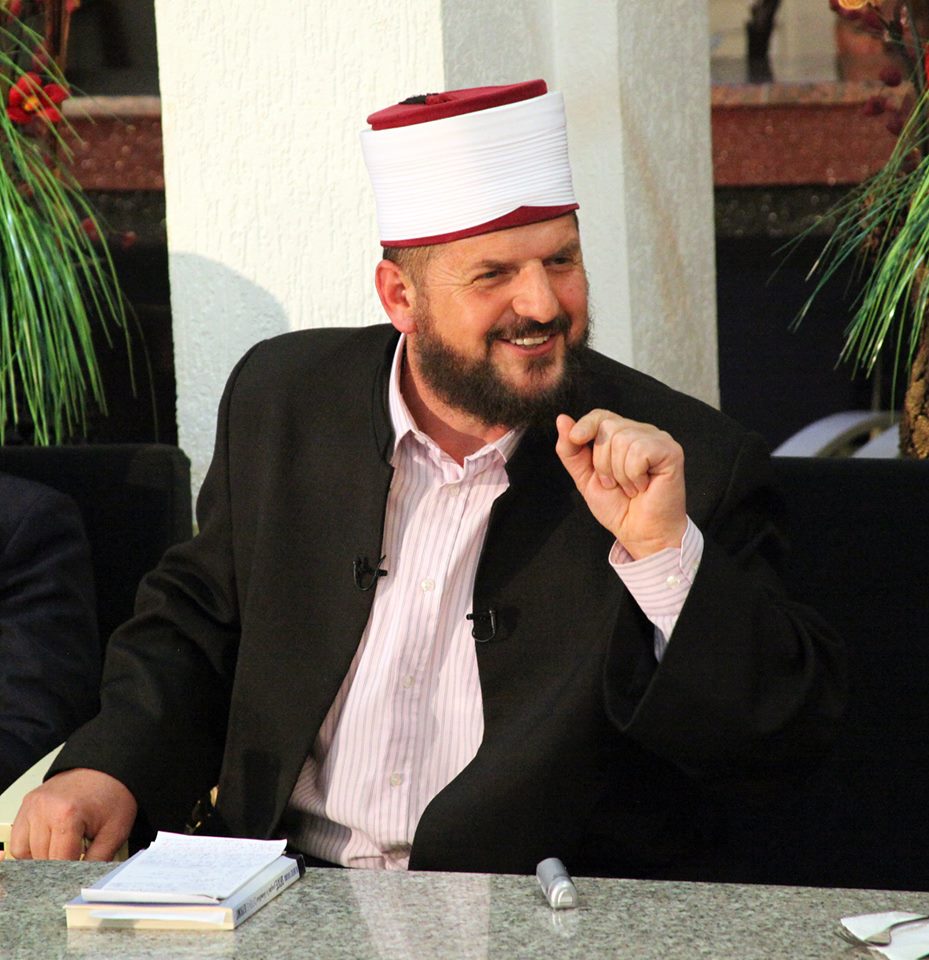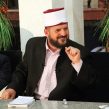
Ethnic Albanian Foreign Fighters and the Islamic State
Publication: Terrorism Monitor Volume: 13 Issue: 10
By:

In recent years, several hundred foreign fighters from the Balkans are believed to have joined the ranks of the Islamic State group (Institute for the Centre for Study of Radicalization and Political Violence, December 17, 2013). Although a large number of Balkan militants fighting in Syria and Iraq are believed to be from Bosnia, with Bosnian police estimates reaching to over 180 fighters, growing numbers of ethnic Albanians, most notably from Albania, Kosovo and Macedonia, have also joined jihadist groups in Iraq and Syria (RFE/RL, February 11). This article aims to explore trends of rising Albanian militancy and to put this in the context of current religious trends and the influences that have penetrated numerous Islamic orders in Albania and among Albanian-speakers in Kosovo and Macedonia in the past few years.
Foreign Fighters
According to recent estimates, there are over 150 Albanian citizens and over 500 ethnic Albanians from Kosovo and Macedonia who have joined terrorist organizations in Syria and Iraq (American Center for Democracy, March 25). In Albania, official police sources claim that 90 Albanian citizens have travelled between 2012-2014 to join groups in the region, initially Jabhat al-Nusra, al-Qaeda’s official franchise, and then later the Islamic State, its more hardline rival. However, religious leaders and journalists that have followed the issue believe the numbers are a lot higher. [1] Many radicals are thought to have travelled with their families to Iraq and Syria, although there are several cases of children being taken away without their mothers’ knowledge. Such was the case of Shkëlzen Dumani, a 40-year-old man from Laprakë, in the Albanian capital Tirana, who reportedly died in Syria in 2014; he allegedly tricked his wife into signing a legal agreement that gave him permission to travel abroad with his two children, who are six- and nine-years-old (Reporter [Tirana], December 16, 2014).
Most recruits to Syria and Iraqi radical groups seem to have come from central Albania, including rural areas near Tirana, Elbasan, Librazhd and Pogradec; however, even smaller numbers of individuals from other towns are also present in the demographics. Interestingly, a number of men that have joined the Islamic State were not uneducated youth; some were educated and had been exposed to Western lifestyles, but had few opportunities offered at home. [2] Due to the EU economic crisis and Albania’s long history of immigration, the country has experienced a surge of immigrants returning home, most notably from Italy and Greece, although there are few employment opportunities for those who return. For these individuals, radical ideologies can offer an apparent solution. Such was the case of Verdi Morava, a 48-year-old currently being tried in Albania for facilitating the travel of jihadists and for financing terrorism. Morava had, for many years, lived in Italy and had graduated with a degree in mechanical engineering. [3] Similar examples are seen throughout the demographics of many young men, some of whom speak several languages, but joined due to ideological beliefs. [4] However, many have since returned, regretful of having participated in a war that was not based on the religious principles that they have imagined. Some of them have even spoken against the war in their communities.
Analysis of the significant numbers of foreign fighters from Kosovo show a generally similar picture. For instance, a recent publication by the Kosovar Center for Security Studies (KCSS), based in Pristina, explored in detail the lives and religious motivations of the over 230 fighters from Kosovo, including veterans of the Kosovo Liberation Army (KLA), assorted youths and also religious leaders who had promoted jihad in local mosques. Some of these volunteers, such as Hetem Dema, a former KLA soldier from Kacanik who was killed in Syria in January 2014, are known to have died in the conflict, while others have since returned. [5] Indeed, the involvement of former KLA fighters is a persistent trend, dating to 2012 when, at the outset of the war in Syria, Kosovo government officials joined the international community in condemning Assad’s atrocities and established “diplomatic contacts” with the rebel Free Syrian Army, with former KLA fighters, in particular, sharing their experiences in dealing with oppressive Serb rule.
Domestic Arrests
Albania is a highly pro-Western nation, with aspirations to join the European Union. It also maintains a strong relationship with the United States, and it has supported the War on Terror since 2001 (E-International Relations, March 4). Partly as a result, it has cracked down strongly on foreign fighters and those believed to be encouraging them. For instance, in March 2014, 13 people were arrested at two mosques based in the outskirts of Albania’s capital, for allegedly recruiting over 70 foreign fighters to join Jabhat al-Nusra, and later the Islamic State, and for having encouraged religious divisions. Nine of the arrested are currently being tried by Tirana’s court over their links to organized crime. Almost unanimously, the indicted men did not deny their accusations, but publicly took pride in their activities. For instance, Bujar Hysa, one of the imams accused, formerly a preacher at the mosque of Unaza e Re, pledged allegiance to Abu Bakr al-Baghdadi, the leader of the Islamic State, when questioned in court over his activities. [6]
Similarly, in Kosovo, which also retains strong links with Western powers, since August 2014, more than 100 individuals have been arrested or questioned by the security services, including a number of leading religious and political figures tied to the Islamic Union of Kosovo, an officially recognized religious institution. However, even though these August operations gained tremendous praise from Western leaders, many of those detained have since been released, including the imam of Prishtina’s Grand Mosque, Shefqet Krasniqi, due to insufficient evidence of their direct involvement in terrorist activities (Gazeta Express [Prishtina], January 22). However, in early March, seven of these suspects were indicted for “inciting others to commit or participate in terrorist activities, and for securing funds and other material resources,” according to a statement by Kosovo’s prosecutor’s office (Balkan Insight, March 3).
Background to Radicalization
Following the collapse of Enver Hoxha’s communist regime in Albania and the Balkan wars that followed Yugoslavia’s dissolution, external religious influences played a key role in facilitating the recruitment of hundreds of ethnic Albanians into Middle Eastern jihadist groups in recent years. For instance, after the fall of the communist regime in the early 1990s, Albania’s Muslim clergy, particularly through the Muslim Community of Albania (MCA) organization, received significant funding from Salafist and Wahhabist groups in the Middle East, which was primarily aimed at changing how the country’s majority Muslim population practiced Islam. [7] This import of Wahhabism was at odds with the country’s Hanafi-influenced Sufi traditions that emphasized both the separation of church and state and also religious coexistence. In addition, although the MCA, and other organizations, have now distanced themselves from conservative and Islamist interpretations of Islam, there are also now numerous mosques that promote a radical “takfiri” vision of Islam. [8]
The Balkan wars of the 1990s served as an additional means for hardline groups to establish a footprint in the region. In particular, the war in Bosnia led to several hundred individuals from Saudi Arabia, Egypt, Pakistan, Algeria and elsewhere, including veterans of the Afghan jihad, volunteering for what they regarded as a holy war against Christian Serbs. Although most of these fighters left after the war, their ideological influence persisted in some areas. In addition, the 1999 war in Kosovo was viewed by Islamist radicals as a jihad on behalf of Kosovo’s mainly Muslim, ethnic-Albanian population. Although, the main armed group, the KLA, followed a largely nationalist agenda and discouraged foreign radicals, the recent appearance of significant numbers of ex-KLA fighters in the ranks of the Islamic State and Jabhat al-Nusra reflects that the Kosovo war may have been given a religious dimension that is only now becoming apparent. Shefqet Krasniqi, for instance, one of Kosovo’s most influential and controversial religious figures, recently posted a video to his official Facebook page that described his role as a war veteran (the first time he confirmed his participation in the war), characterized the 1999 war as conducted “in the name of Allah” and said that God and homeland are tied together (Facebook, April 10).
Implications
Despite the moderate traditions of Islam practiced among most Muslim communities in the Balkans, a number of factors, including the legacy of the Balkan wars, the influx of Wahhabi influence after the collapse of communism and Europe’s recent economic problems, have combined to lead hundreds of ethnic Albanians from across the region to join radical groups in Iraq and Syria. As elsewhere, radical Islamist influence is also multiplied by skillful jihadist use of social media, YouTube and Twitter-based propaganda to target Albanian-speaking audiences, particularly those questioning the legitimacy of “traditional” Balkan Islam and also those rejecting democracy. These developments, as well as boosting the combat power of radical groups in Iraq and Syria, present an additional challenge to the long-term stability of the Balkan region, where various unresolved grievances between ethnic groups and memories of historic conflicts remain close to the surface. The volatility of the region and the potential for fresh interethnic conflict was lately underlined in Macedonia where clashes on May 9-10 left 22 people dead, including fighters who had reportedly crossed the border from Kosovo, and caused severe destruction in neighborhoods populated by mainly ethnic Albanians in Kumanovo (Reporter [Tirana], May 11). The Macedonian prime minister, Nikolla Gruevski, called the alleged perpetrators “terrorists” who sought to “destabilize the country” (Illyria Press, May 10). In response to the attack, many ethnic Albanians living in Macedonia called for restraint and peace between ethnic groups on social media; others, however, were quick to call for war to get rid of “kuffars” and to create a Greater Albania. These differing reactions symbolize the different trends that are becoming increasingly evident in Albanian society throughout the region.
Ebi Spahiu is a researcher at the Albanian Institute of International Affairs (AIIS) based in Tirana. She focuses her research on Central Asian and Western Balkan Affairs, focusing on gender and religious extremism.
Notes
1. Author’s field interviews with state officials, journalists and religious leaders in Albania.
2. Author’s field interviews with local religious leaders in the above-mentioned areas.
3. Author’s interview with Verdi Morava’s father, Dielli Morava, March 2015.
4. Author’s field interviews.
5. “Report inquiring into the causes and consequences of Kosovo citizens’ involvement as foreign fighters in Syria and Iraq,” Kosovar Center for Security Studies, April 14, 2015, https://www.qkss.org/en/Occasional-Papers/Report-inquiring-into-the-causes-and-consequences-of-Kosovo-citizens-involvement-as-foreign-fighters-in-Syria-and-Iraq-408.
6. Author regularly observes on-going trials at Tirana’s Court of Organized Crimes.
7. Author’s several interviews with local imams and with leaders of the Muslim Community of Albania.
8. Author interview with Aleksandra Bogdani (BIRN Journalist), March 23, 2015, Tirana, Albania.





